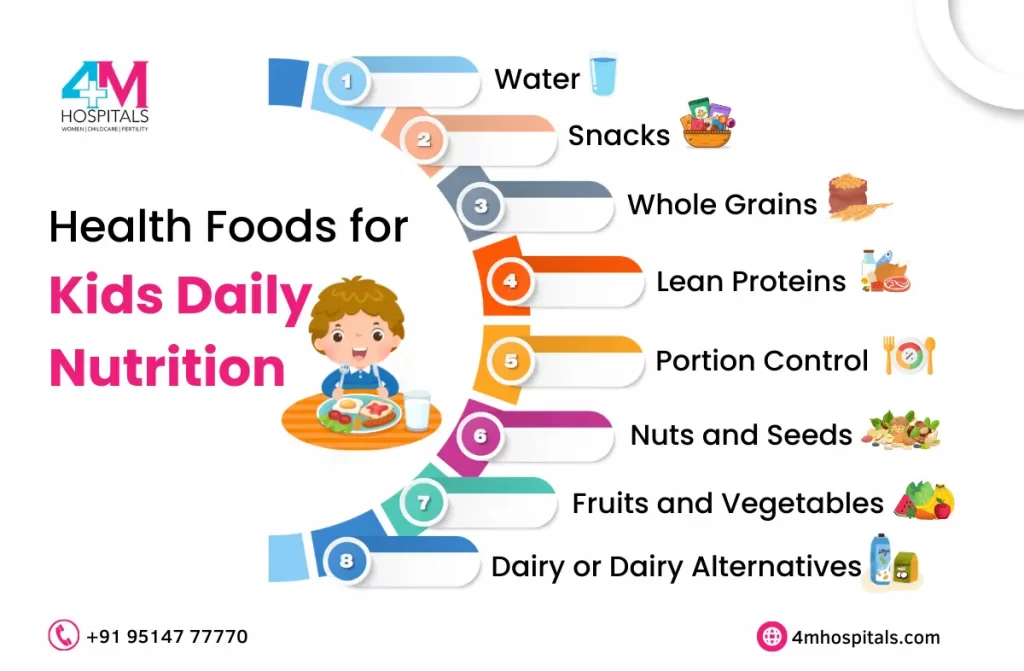Childhood is a critical phase of development, and proper nutrition is a cornerstone of a healthy start in life. In India, where the diversity of cultures and traditions is mirrored in the diversity of diets, child nutrition holds immense significance. Child nutrition in India, however, is an area where challenges and disparities persist. In this blog post, we will delve into the state of child nutrition in India, exploring the issues, initiatives, and the quest for the best child nutrition practices.
The Complex Landscape of Child Nutrition in India
Child nutrition in India is a multifaceted issue influenced by several factors, including socio-economic status, geographical location, and cultural practices. While India has made considerable progress in recent years, challenges remain. Malnutrition, stunting, and micronutrient deficiencies are still prevalent, especially in marginalized communities.

Initiatives for Improving Child Nutrition
In recent years, various government and non-governmental initiatives have been launched to address the challenges of child nutrition. Some of these include the Integrated Child Development Services (ICDS) program, the National Nutrition Mission (POSHAN Abhiyaan), and mid-day meal schemes in schools. These programs aim to provide essential nutrients to children and pregnant or lactating mothers.
The Role of Best Child Nutrition Practices
In the quest for improved child nutrition, implementing best practices is essential. This includes:
- Exclusive Breastfeeding: Encouraging exclusive breastfeeding for the first six months, as it provides infants with essential nutrients and antibodies.
- Diverse Diet: Promoting a diverse and balanced diet that includes cereals, pulses, fruits, vegetables, and dairy products to ensure adequate nutrient intake.
- Micronutrient Supplementation: Providing vitamin and mineral supplements to address deficiencies.
- Hygiene and Sanitation: Ensuring access to clean drinking water and proper sanitation facilities to prevent waterborne diseases.
Why Is Early Nutrition Important for a Child’s Development?
Early nutrition is vital for a child’s proper development, especially in the context of child nutrition in India. Here are some major points demonstrating its significance:
Brain Development: Proper nutrition during early childhood is crucial for brain development, as it supports cognitive functions and learning.
Growth and Development: Adequate nutrition ensures physical growth and the development of essential organs and tissues.
Immune System: Proper nutrition boosts a child’s immune system, helping them resist illnesses and infections.
Behavior and Mood: Nutrition can influence a child’s behavior, mood, and emotional well-being.
Foundation for Adult Health: Early nutrition sets the stage for long-term health and can prevent future health issues.
In India, addressing child nutrition is essential to ensure a healthier and brighter future for the younger generation.
Challenges and the Way Forward
Despite the progress and initiatives, challenges in child nutrition in India persist. Some key challenges include the unequal distribution of resources, cultural beliefs affecting dietary practices, and lack of awareness about best child nutrition practices.
Moving forward, a comprehensive approach is needed. This includes continued investment in healthcare and nutrition programs, improving women’s and girls’ education and empowerment, and raising awareness about the importance of nutrition in child development.
Best Child Nutrition in India: A Path to a Brighter Future
The significance of best child nutrition in India cannot be overstated. Providing children with the best nutrition is an investment in their future, ensuring physical and cognitive development and overall well-being. With continued efforts, awareness, and effective policies, India can strive towards a future where every child enjoys the benefits of the best child nutrition practices.
Conclusion
Child nutrition in India is a topic of immense importance, with far-reaching consequences for the future of the nation. It is a field where progress has been made, but challenges persist. Government and non-governmental efforts are vital, but individual awareness and action are equally crucial. We all have a role to play in ensuring that every child in India receives the best nutrition and the opportunity for a brighter future.
We invite you to share your thoughts, experiences, or questions regarding child nutrition in India in the comments section below. Your insights and ideas contribute to the ongoing conversation about this critical issue.
Also Read Pediatric Hospital Chennai.





